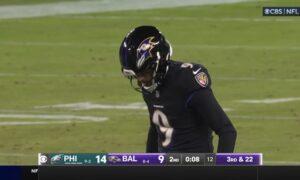When the Pittsburgh Steelers drafted Le’Veon Bell in the second round of the 2013 NFL Draft, they resolved to surround him with veteran, experienced running backs, first retaining Isaac Redman for the purposes of continuity—later Jonathan Dwyer—while bringing in Felix Jones and LaRod Stephens-Howling.
Surrounding the young rookie with experienced players at the position who have gone through the gauntlet and seen starting reps at one point or another, it was thought, would give Bell a jump start and help ease his transition from the college level to the pros.
Two of the above named backs ended up not panning out, of course, with Stephens-Howling tearing his ACL in the season opener and Redman ultimately being released after he proved unable to recover from his own injuries (he subsequently retired).
While neither Dwyer nor Jones ultimately proved to be very effective complementary pieces, the offense still continued to assure that they would see snaps in order to try to limit the burden placed on their rookie starter.
The Steelers hoped to rectify that situation entering Bell’s second season, doing away with all of the running backs behind him on the roster from the year before and going out to sign LeGarrette Blount, a veteran back who has seen a great deal of success in the league over the years, and with different teams.
It was a signing that I among many welcomed and lauded, believing that he would be a fine complementary piece that could, in an emergency, carry the load if necessary. That necessity did finally arrive in the 17th game of the season, in the Wildcard round against the Baltimore Ravens on Saturday.
But Blount forced his own way out of Pittsburgh with his behavior and demeanor—and not to mention his ultimately underwhelming production, outside of a 100-yard game in the third week of the season.
Blount was released toward the middle of the season, quickly scooped up by one of his former teams, and instead, Bell was simply given just about every carry and played nearly every snap on offense for the remainder of the season, up until he suffered a hyperextended knee in the season finale.
The Steelers were forced to scramble, signing Ben Tate and starting him, playing him with gusto at the beginning of the game until he fumbled. Then rookie undrafted free agent Josh Harris got nine carries with varying effectiveness. Rookie Dri Archer’s contributions have been limited all season.
It’s clear that the Steelers really have not had in place an effective backup plan at running back for either of Bell’s first two seasons, though this is a fact that we now know largely in hindsight. What must be done now is to assure that it doesn’t happen again.
Both Harris and Archer are still under contract next season, but can they count on Harris to develop into a legitimate backup running back? Will they go back to the position early in the draft, or sign another free agent? I certainly expect that the front office will address this position with a significant addition at some point during the offseason.








